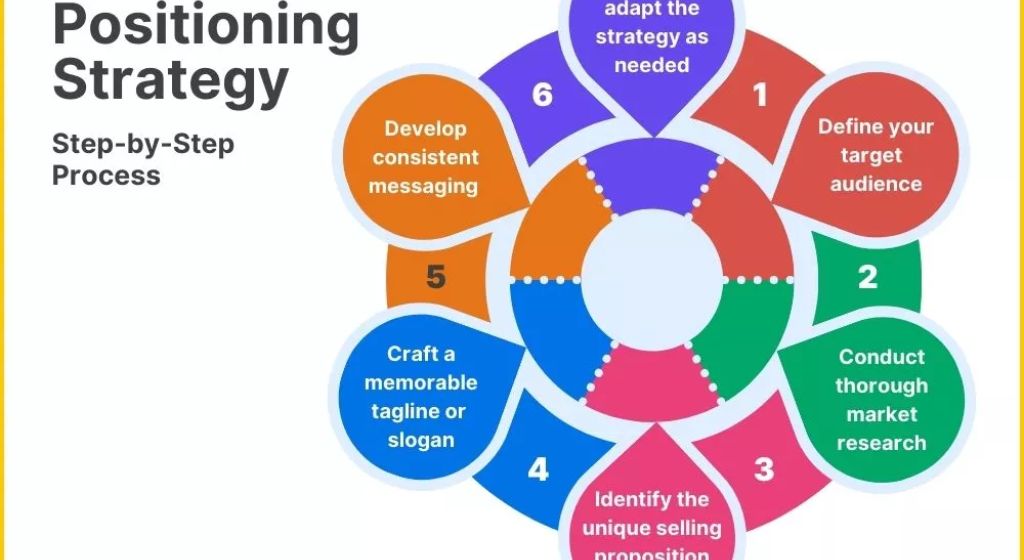In today’s crowded market, where countless brands are competing for attention, trust is everything. People no longer buy just products—they buy from brands they believe are credible, knowledgeable, and reliable.
That’s why positioning your brand as an industry expert is a powerful strategy. It helps build long-term relationships with customers, earns media attention, and even opens doors to partnerships and investor interest.
But becoming recognized as a trusted voice in your field doesn’t happen overnight. It requires a thoughtful approach to content, communication, visibility, and credibility.
Here’s a step-by-step guide on how to position your brand as an industry expert.
1. Define Your Niche and Expertise
Before you can become known as an expert, you must clearly define what you’re an expert in. Being a generalist won’t help you stand out—especially in industries where specialization is key.
Ask yourself:
-
What unique insight or experience does your brand offer?
-
What problems do you solve better than anyone else?
-
What niche topics do you have deep knowledge in?
For example, if you’re a B2B software brand, don’t try to own the entire “tech” conversation. Instead, focus on a sub-niche like “AI in HR software” or “data security for remote teams.” Owning a narrow space first is more effective than trying to be everywhere.
Tip: Positioning is about focus. Be specific about what your brand stands for and where it offers the most value.
2. Create High-Quality Thought Leadership Content
Publishing insightful content is one of the most effective ways to demonstrate expertise. This goes beyond simple blog posts or promotional emails.
Thought leadership means creating content that educates, challenges assumptions, and adds real value to your audience.
Content formats to consider:
-
Long-form blog articles that explain complex topics
-
Whitepapers and research reports with original data
-
Webinars, live panels, and interviews with your team
-
Expert guides, eBooks, or how-to resources
-
LinkedIn articles or opinion pieces
The key is consistency. Your content should regularly show up in the places your target audience reads or watches—bringing them not just information, but insight.
Tip: Tie your content to timely industry trends, policy changes, or new technologies to stay relevant.
3. Use Your Founders and Executives as Brand Ambassadors
Your brand becomes more trustworthy when real people are behind it. CEOs, founders, and executives can be powerful faces of expertise. When they share knowledge, tell stories, or offer commentary, the brand’s authority grows.
Ways to activate your leadership team:
-
Have them write or co-author content on industry issues
-
Book them for interviews, podcasts, or panel events
-
Feature their insights in newsletters or on LinkedIn
-
Submit their names for speaker opportunities at industry conferences
People trust people more than logos. When leaders speak with authenticity and knowledge, the brand’s credibility increases by association.
4. Earn Media Coverage in Relevant Outlets
Getting mentioned in media—especially trade publications and niche blogs—adds instant credibility. It shows your brand is trusted enough to be a source of insight.
Start by:
-
Offering expert commentary on industry developments
-
Pitching original data or trend reports
-
Submitting op-eds on timely topics
-
Positioning yourself as a go-to source for journalists covering your niche
Don’t focus only on top-tier outlets like Forbes or CNBC. Getting featured in respected industry-specific publications can be even more effective for building expert status in your field.
Tip: Build relationships with reporters and editors before you pitch. Follow their work, comment, and engage genuinely.

5. Win Industry Awards and Certifications
Third-party validation helps back up your expertise. Entering your brand into industry awards or earning certifications shows that your excellence has been recognized by others.
Examples:
-
Best Startup Awards
-
Tech Innovation Awards
-
Environmental Impact Certifications
-
ISO or industry-specific compliance badges
Once you earn them, display them proudly on your website, pitch decks, and press materials. They show that your brand not only says it’s an expert—but has proof to support it.
6. Host and Participate in Industry Events
Events—whether in-person or virtual—are a great way to showcase your expertise. Hosting webinars, online roundtables, or in-person meetups can build your brand’s visibility and thought leadership.
Consider:
-
Partnering with other experts or organizations to co-host events
-
Speaking at conferences or panels
-
Participating in Q&A sessions or AMA (Ask Me Anything) forums
-
Offering product demos as part of educational sessions
Even if you’re not ready to host an event, being visible at others—either as a speaker, sponsor, or panelist—positions you as a serious player in your industry.
7. Leverage Customer Success Stories
Your happy customers are your strongest proof of expertise. Share real-world case studies showing how your product or service solved a specific challenge. Focus on measurable results, like increased revenue, improved efficiency, or reduced downtime.
Include:
-
The customer’s challenge
-
How your brand helped
-
The outcome and data
-
Quotes or testimonials
When people see that your brand delivers results in the real world, your credibility naturally rises.
8. Build an Expert Presence on LinkedIn
LinkedIn is the go-to platform for thought leadership and professional credibility. Your company page and executives’ personal profiles should reflect your expertise through regular, value-driven posts.
Post ideas:
-
Hot takes on recent industry news
-
Lessons learned from your business journey
-
Quick tips, charts, or infographics
-
Sharing published articles or media appearances
-
Engaging with others in your niche
Encourage employees to share brand content too—it increases reach and strengthens your reputation from the inside out.
Tip: Use LinkedIn Newsletters or live audio to deepen your brand’s reach.
9. Be Transparent and Authentic
People don’t want experts who pretend to be perfect. They want brands that are honest about what they know—and what they’re still figuring out.
Share challenges, mistakes, and lessons learned. Use behind-the-scenes stories to humanize your brand. When you’re authentic, people are more likely to trust your expertise.
Transparency builds long-term loyalty and a reputation for honesty—something few brands can buy.
10. Keep Learning and Innovating
You can’t stay an industry expert if you’re not keeping up. Dedicate time to ongoing learning, research, and innovation. Attend conferences, read the latest reports, and listen to customer feedback.
Your brand should be seen not just as an expert—but as a forward-thinking leader shaping the future of your industry.
The most respected brands are those that stay curious and aren’t afraid to evolve.

